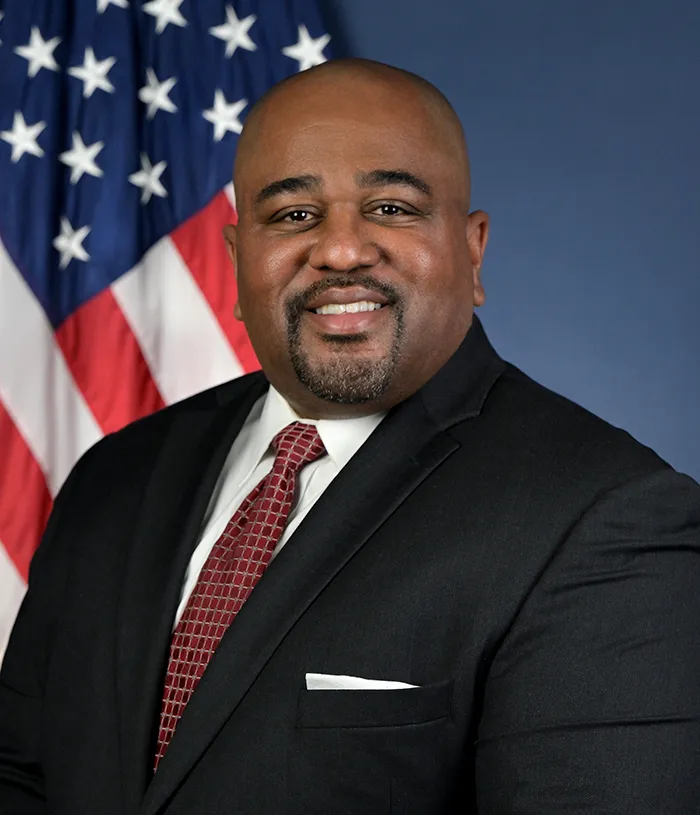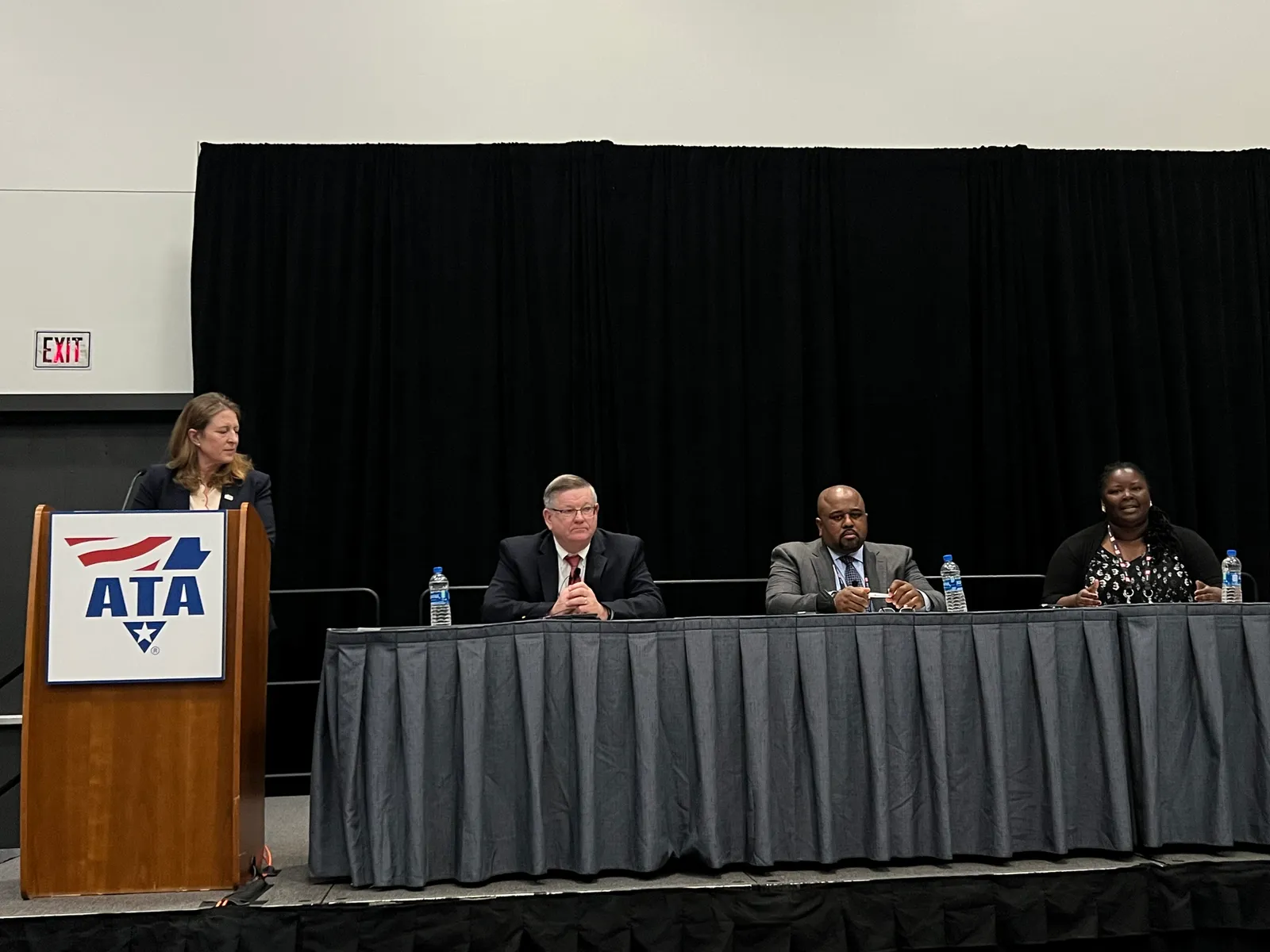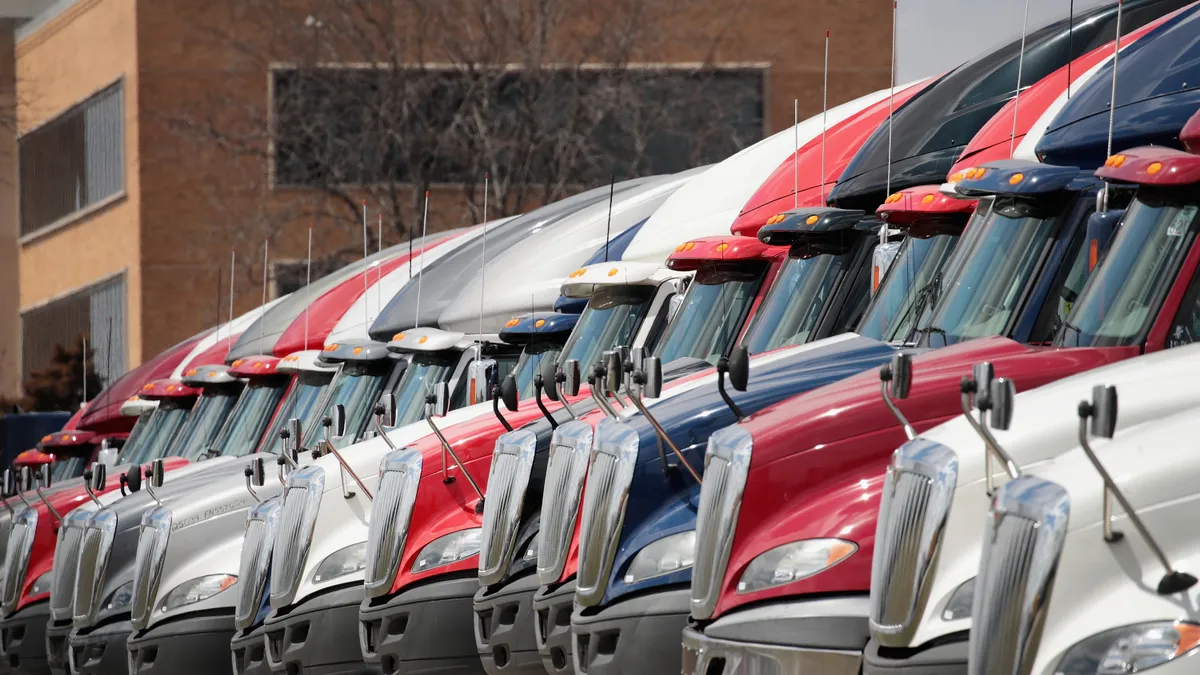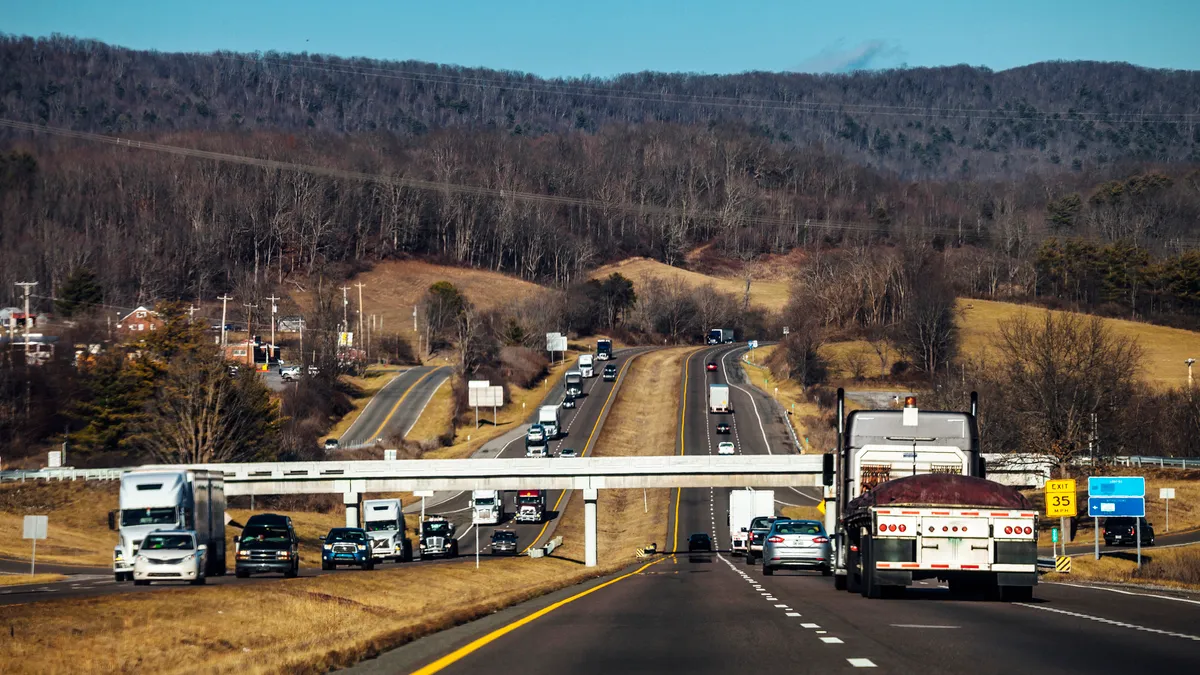As the Federal Motor Carrier Safety Administration and its contractors finish poring over more than 15,000 comments on speed limiters, the agency remains on track to announce a rule this year, according to Deputy Administrator Earl Adams Jr.

Adams, who worked in Maryland politics prior to being promoted from FMCSA chief counsel earlier this year, described speed limiters as “a hard issue.” But he emphasized that the agency knows speed is a leading cause of crashes.
“As you can imagine, it's taken some time, but we are moving forward,” Adams said. “Our plan was always sometime in 2023. And I think we're still on track to be able to meet that.”
The deputy administrator provided some regulatory insights on speed limiters, AVs and double-brokering in a roughly 20-minute interview with Transport Dive.
Editor’s note: This interview has been condensed for brevity and clarity.
TRANSPORT DIVE: Any initial thoughts as you dig through all those love letters to your office about speed limiters?
EARL ADAMS JR.: They were love letters. They were, they were wonderful. You know, it was either the largest or second-largest number of comments the FMCSA has received. It’s noteworthy. I give all credit to our team of both FMCSA folks and consultants who went through all of those comments and prepared the responses to them as we're working through the important rule.
When we look at the National Roadway Safety Strategy, safer speeds is a key component. And so being able to find the right balance, which is always the case in good rulemaking, that's our challenge. I think we're up to it.
In my conversations over the last few weeks, I've been very pleasantly surprised by the number of carriers that use speed limiters, and have used them for many years, and who understand the value and benefits.
In the end — though there's never gonna be full agreement — it's going to be clear that we’ve achieved the goal. That is, an iterative process where the public is allowed to give us feedback, we consider it, and then we come up with the final rule.
Since you’re the agency’s lead on AV regulation, any word when we might see rulemaking on autonomous trucks?
ADAMS: As the federal regulator, we'll set the national guardrails for this sector.
When we walked in the door in January 2021, Transportation Secretary Pete Buttigieg laid out his innovation principles. And then, across the modes, we have been working very hard and diligently on being able to establish those guardrails. Until that time, the states are all engaged, and we have been talking to and working closely with all of them where able and possible, sharing data, and understanding what they're seeing.
Also I give credit to the National Highway Traffic Safety Administration, our sister agency, on the standing general order where for the first time we get data on crashes or any incident involving an AV vehicle. It's setting us up for what is going to be a very productive conversation, a good first effort at establishing guardrails.
Administrator Robin Hutcheson and I have been very clear: We know this is going to be an iterative process. We're going to need multiple rules, because it's an evolving industry and sector. So I am excited, in the sense that I think we're going to have the right amount of data to put forth a very solid rule.
When might we see such a rule? Sometime this year?
ADAMS: I will offer the same answer I have for folks in the industry. We are working diligently and expeditiously on advancing the rule.

OK, onto another topic: brokering fraud. While not technically a safety issue, it falls under FMCSA’s purview. How does the agency hope to solve the problem?
ADAMS: It is an issue that we are very much aware of. We are concerned about it. You are right that it does not squarely fit within our safety mandates box, but there are safety links to it. Anything that impacts drivers, their mindset, their approach — or carriers, how they are dealing with their drivers, or how they're dealing with each other — has downstream implications on safety.
We need people to be focused on the job at hand, and so whether you're talking about double-brokering, whether you're talking about detention time, any of these economic things, frankly, they definitely can have an impact. So that's why we are concerned about it. We’ve had multiple conversations with OOIDA, ATA and TIA about this issue.
We're trying to examine what is the best approach, whether it's rulemaking, whether it's using existing authority, to examine it more closely. We're also working with our state partners, because a lot of these things involve just outright consumer fraud and consumer protection and contract violations under state law.
I would say that one is a ‘to be continued.’ This is not going to go away. So we're trying to look at all of the pieces together and we'll decide what is the best approach.













